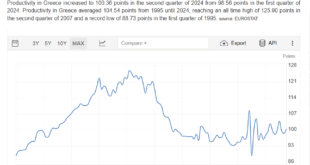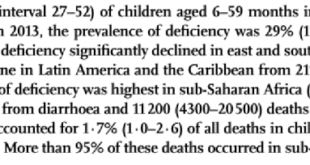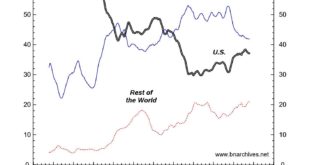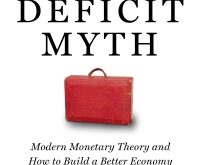Executive summary: if investments are needed, do not reform. Invest. Investments are the reform. Angus Maddison (historical patterns of growth) and Jan Kregel (leading post-Keynesian economist) were the intellectually dominant forces during my economics study in Groningen around 1982. Let´s apply their frameworks to Greece. Growth, as we measure it, has many sources: increasing the productivity of existing activities (the mechanization of the potato harvest), shifting labour from...
Read More »Argentina bucks the trend. Vitamin A deficiencies are increasing
Because of libertarian policies of the Milei government in Argentina, poverty and food deficiencies are increasing. People are getting less healthy and, hence, less able to care for themselves and their loved ones. One problem we thought we got rid of but resurfaces in Argentina: vitamin A deficiencies. Children are getting sick and starting to go blind. Vitamin A helps your body protect itself against many diseases. Thanks to concerted action and diffusion of knowledge and action,...
Read More »Armistice Day
The Great War continues, more than 100 years later Yesterday was November 11, the anniversary of the armistice which ended fighting on the Western Front of what was then called the Great War. It’s always an occasion for sad reflection on my part, thinking about the pointlessness of the massive sacrifices of the War, which achieved nothing except to set the scene for worse disasters to come. But it’s particularly sad in a year when the forces unleashed by the War have come back to...
Read More »Making America Great Again, 2024
from Shimshon Bichler & Jonathan Nitzan In 2019, we published a RWER paper assessing Trump’s promise to ‘Make America Great Again’. https://bnarchives.net/id/eprint/630/ Here are updates of two key charts from this paper. The first figure depicts the relative global decline of U.S. corporations. It shows that U.S. firms currently accounts for ~1/3rd of global corporate profit, down from 2/3rds half a century ago. The second figure shows the growing dependence of U.S. firms on foreign...
Read More »Völkermord in Gaza. Two million deaths are in the cards.
The new UN report on deaths in Gaza makes for Grim Reading. According to the admirable work of UN data sleuths, details close to 10.000 of the official 40.000+ deaths have been added. These are only the direct victims; indirect victims (starvation, stress, sickness) are omitted. One of the findings is that, unlike during earlier periods of war in Gaza, killing is indiscriminate. Many of the victims were women and children (graphs). The youngest victim was one day old, and the oldest was...
Read More »The Ukraine – Russia war explained: how the US exploited internal fractures in the post-Soviet order (plus lessons for Georgia)
This paper explores the deep causes of the Ukraine – Russia war. It argues that the war has both internal and external causes. The internal causes are rooted in the way the Soviet Union disintegrated. The external causes relate to how the US exploited the fractures in the post-Soviet order to advance its Neoconservative agenda […]
Read More »The 35-hour week is overdue[1]
Back in 1947, the standard Australian working week was reduced from 44 hours to 40. In 1983, 36 years later, the working week was reduced to 38 hours. That was more than 40 years ago, and there has been a lot of technological progress since then. It makes sense to take some of the benefits of that progress in the form of shorter working hours. I’ve been an active supporter of the movement for a Four-Day week, but progress has been slow. Some of the moment has been dissipated by the...
Read More »Weekend read – Logic and truth in economics
from Lars Syll To be ‘analytical’ and ‘logical’ is something most people find recommendable. These words have a positive connotation. Scientists think more deeply than most other people because they use ‘logical’ and ‘analytical’ methods. In dictionaries, logic is often defined as “reasoning conducted or assessed according to strict principles of validity” and ‘analysis’ as having to do with “breaking something down.” But that’s not the whole picture. As used in science, analysis usually...
Read More »Who brought us Trump?
from Peter Radford Battle is joined … This might annoy some of you — it is my hasty first thought. The Democrats have been thoroughly defeated. Deservedly so. They no longer relate to, or reflect, the American working class. Without building such a relationship they cannot regain power. Nor should they. Yesterday, early on the morning of election day, a friend of mine forwarded an article by Robert Reich who argued that, in order to defeat Trump, Harris needed to focus more on the...
Read More »MMT — debunking the deficit myth
from Lars Syll We have already shown that deficit spending increases our collective savings. But what happens if Uncle Sam borrows when he runs a deficit? Is that wht eats up savings and forces interest rates higher? The answer is no. The financial crowding-out story asks us to imagine that there’s a fixed supply of savings from which anyone can attempt to borrow … MMT rejects the loanable funds story, which is rooted in the idea that borrowing is limited by access to scarce financial...
Read More » Heterodox
Heterodox






